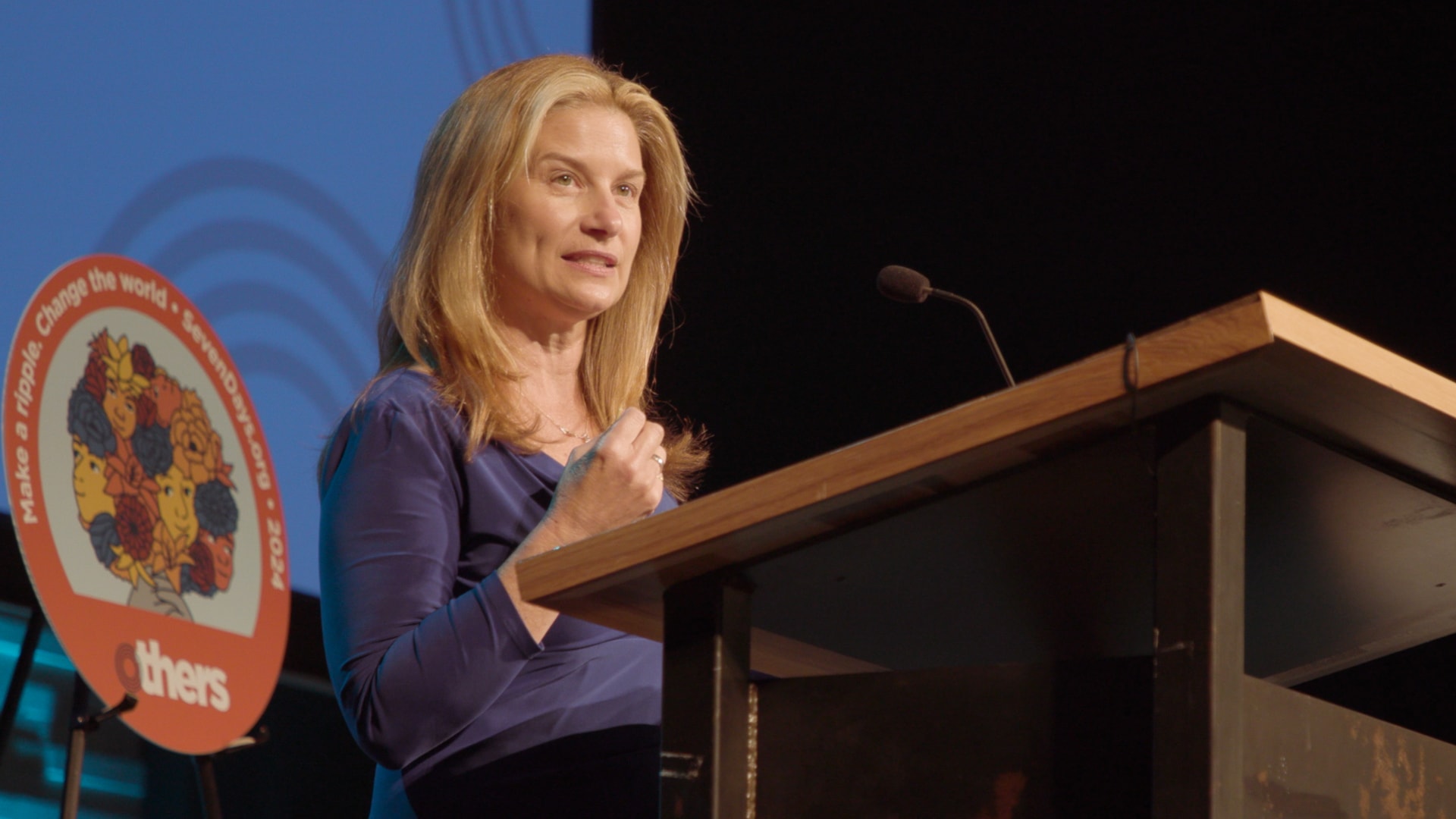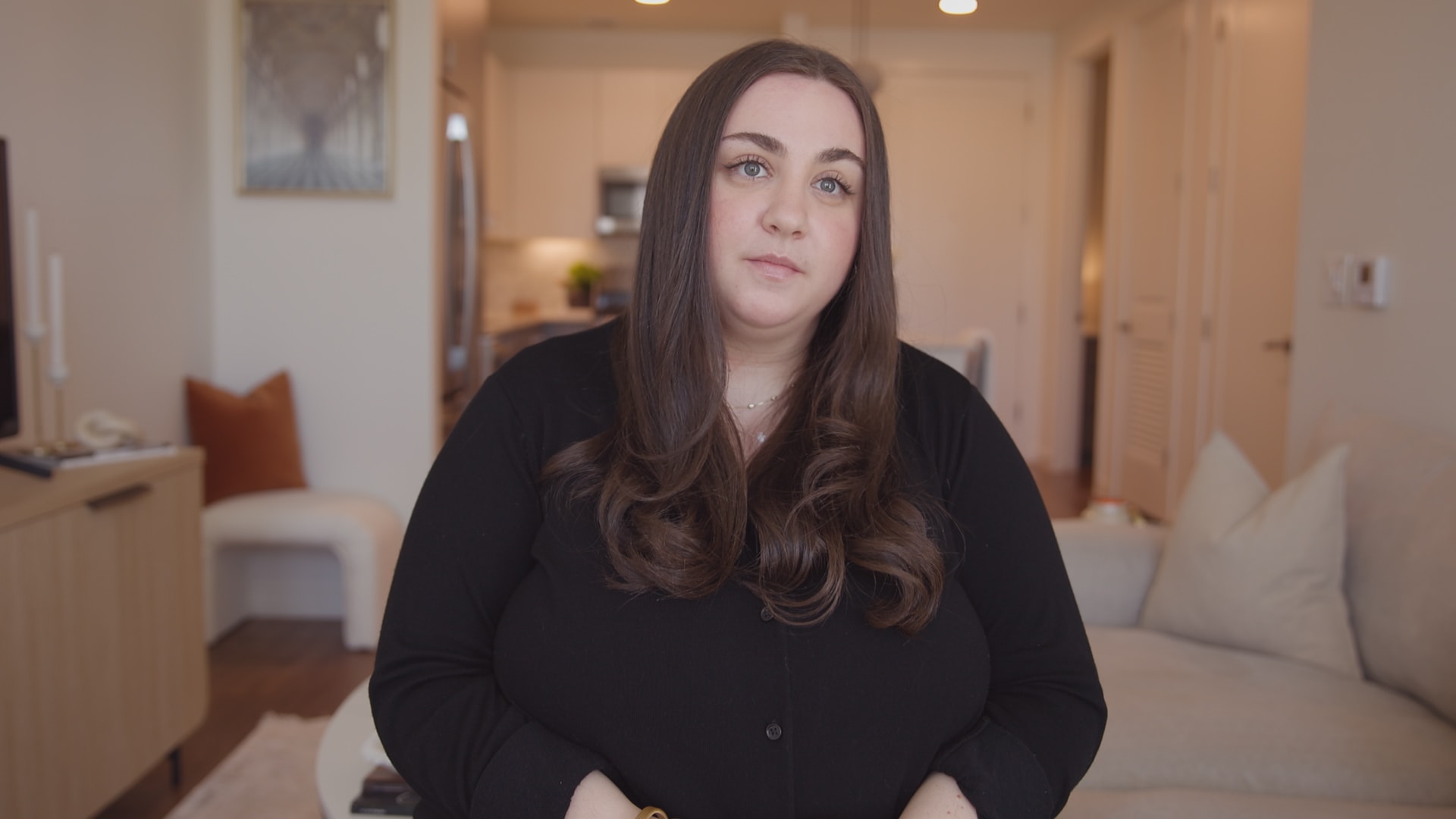Children Share Harsh Lessons of Unchecked Gun Violence ‘Tomorrow is Not Promised’
Published April 24th, 2024 at 6:00 AM
Above image credit: Swope Health KidsCARE program was among the many tables of community services set up at an anti-violence workshop at Ewing Marion Kauffman School. Swope offers behavioral health resources for children birth to 17, an. aspect of helping families impacted by gun violence. (Contributed)If you want to know how young people feel about gun violence, just ask.
They’ll tell you.
But be prepared to listen. Not many adults do, youth say. Rather, most adults make it all about their own struggles and experiences.
Young people prefer adults to listen, with an open mind, an open heart and a willingness to find help for the child if they need professional counseling.
This was the advice of two students who recently answered a series of questions asked of them by Ewing Marion Kauffman School Dean of Students Byron Ashford.
Perched on tall chairs, the exchange came at the end of a workshop on Saturday organized largely by the students at the school.
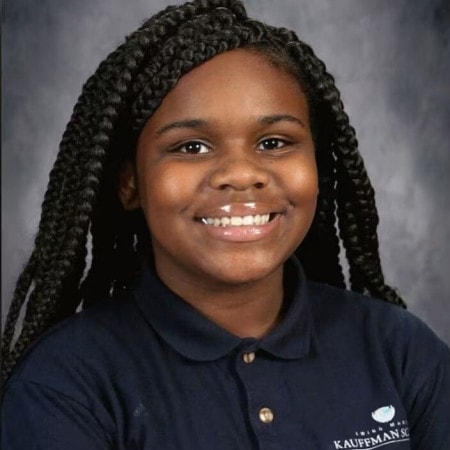
A classmate, Kourtney Freeman, was buried the next day with many of those same students and teachers present at the funeral services.
Kourtney helped plan the anti-violence workshop. Then, the 11-year-old was shot and killed, a bullet going into her house fired by someone who had been outside of the home, police said.
The April 10 murder, which remains unsolved, was one of several instances in recent weeks where a child was shot, with two dying.
Blue wrist bands handed out on Saturday conveyed the theme of the day, echoed on the t-shirts that many students and Kauffman staff wore.
Violence is a choice. Peace is the answer.
Ariana Brown is a 15-year-old high school freshman.
She loves soccer and her siblings, all of whom now live with their maternal grandmother, after spending some time in foster care.
Last October, Ariana’s elder brother was shot and killed in a double homicide that remains unsolved in Raytown.
Jaden Brown was 20, a young man that Ariana says was trying to turn in his life around, embracing his faith and staying connected with his family, always with humor.
The other victim, Brendon Fisher, was 19.
Joshua Jones, 17, is a junior. He goes by Josh and has also experienced gun violence. He looks to sports as a stabilizing factor for his life, with a special emphasis on football. He says that he’s “faced death a couple of times” due to violence. He grew up in a fatherless home, a situation that has fueled his anger as a young man.
There were financial troubles as his mother did her best to provide. The family’s electricity and gas were cut off. But eventually, an aunt helped stabilize the family when they moved in with her.
The student’s replies to Ashford’s questions were slightly edited for clarity.
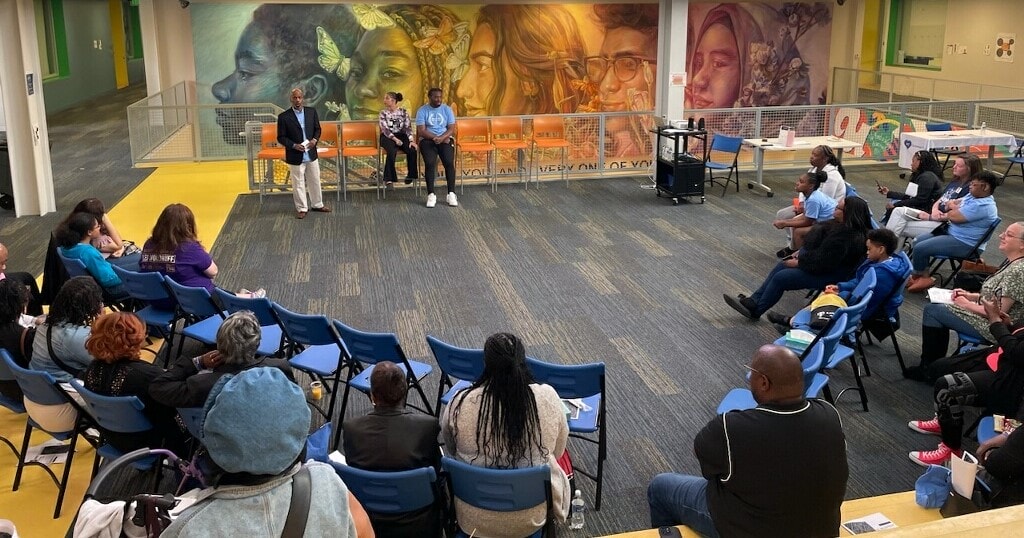
Q. When you hear another shooting has happened, how does that affect you?
Josh: Honestly, when you hear that another shooting has happened, or another person has lost their life, to me, I’m kind of numb to it because I’ve experienced it too much, to where you can’t react. The only thing that you can really think of is, ‘Who’s next? Or when is the next time it’s going to happen? Or when is the next time that you have to look over your shoulder to make sure that you are not the target?’ It shouldn’t be like that. But in the world that we live in, you only can only control what you can control.
Ariana: At first, I was numb to it. Because that’s what I grew up around. And it was so normalized that nobody ever bats an eye at it. It’s like, ‘Oh, this is just another time, another person.’ Like he said, ‘Who’s next?’
But then I lost my brother. Now I’m disappointed. Now I’m like: ‘Oh, that is somebody’s brother. That’s somebody’s loved one. That is somebody’s sister. That’s somebody’s baby and that is impacting them.’ What can we do to fix this?
Q. What impact has gun violence had on you emotionally and mentally?
Josh: Emotionally, it’s the numbness. And mentally, it’s the thought of who’s next. Am I going to be next? Is my friend going to be next? Is my family going to be next? That’s the number one question. Who is going to be next?
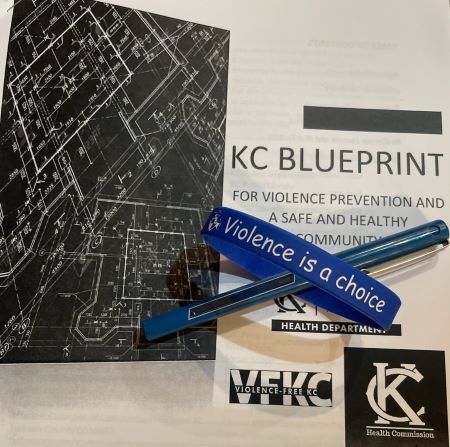
Ariana: The person who killed my brother, he’s still out there. It was a double homicide. The police, they don’t tell us anything. It’s hard, because now you’re thinking that there’s a killer out there. Who else is this person going to kill?
It makes me think, ‘What if that happens to another one of my siblings?’ I feel like I’m not strong enough to go through that again, because it is still fresh in my mind. I lost motivation with school. And for my sports, which I was really passionate about, I just wanted to give up.
At the time, my brother was doing good. He was going to church, and he was praying and then he was just gone.
Now, I truly believe that tomorrow is not promised. You have to make the best of every single day.
Q: What do you think needs to happen in this community to decrease the violence?
Josh: If you see something, you should say something. You should say something even if it wasn’t your people. Because nothing becomes reality until it impacts you. And then everybody wants to cry and plead for the people to be there.
We’ve talked about the difference between witnessing and snitching.
But we all know that the code of the streets has been gone, a long time ago. Now, it’s kids getting killed and grandmas and women. So, it’s time to bring back a new code. You say something if you see something.
Ariana: The violence is so normalized. The influence is real. We’re normalizing violence as the answer. In school there are fights happening because someone was being bullied and the parents don’t do anything about it, ‘Oh, no, it’s self-defense.’ But no, it’s normalizing.
Children teach other children. It becomes second nature, like a reflex.
But if we continue to normalize violence, then things are never going to get better. You have to stop it where it starts.
Q. How has violence affected your relationships?
Josh: When you lose a brother, or if you lose friends, you lose a relationship that was built for years and years. Pieces have been taken away from you by a single bullet and by the person behind the bullet, thinking that what they did was right.
It kills you emotionally and socially, physically and occasionally mentally. Because it’s like one day you were talking to them and the next day, they were gone.
And you’re sitting there questioning if you could have done something to protect them from that situation.
Ariana: I stopped talking to people. I stopped making jokes because I didn’t know what to do.
I was so lost because when you lose a close relationship like that, it’s like you lose a part of yourself because now all you have to rely on is his memories and stories.
That’s why I like talking about him (her deceased brother). I like to tell people what they’re missing. He’s gone and now they don’t get to see the light that he spread to everyone.
Also, I was very angry. I was angry at the world, and I was most definitely angry at my parents. I live with my grandma.
“Not every parent deserves a child. But every child deserves a parent.”
Ariana Brown, a student at Ewing Marion Kauffman School
I was just angry at them because they knew what he was doing. And they didn’t stop him. When he dropped out of school, they didn’t bat an eye because they also dropped out of school.
That’s why I said that it starts at home. I blamed them for his death.
Because not every parent deserves a child. But every child deserves a parent.
Q. What can we, as adults, do to support you when you have violence impact you?
Josh: If your kid comes to you and tells you that they’re going through something mentally, please do whatever you can to make sure that you talk to them or find somebody that they feel comfortable talking to. Because at the end of the day, it’s your responsibility as a parent.
Don’t try to save them by keeping them from getting help because you think you can do it alone because you are the parent.
Like my mom, she went to Swope to make sure that I got the help that I needed. And we’re still working on it now. Thank you, mom. I love you.
Ariana: Be open-minded. That’s the biggest thing because I feel like for some parents, discipline is always the answer.
Sometimes kids do need to be disciplined.
But if they have a change of behavior and you brush it off as just a teenager being influenced by others, that can be a big issue.
Like if your child is acting really bad and your first thing is to discipline them, you’re not being open-minded and you’re not thinking straight.
Because something happened, whether it was at school, or at home, that child is going through something.
And sometimes if they won’t talk to you, you have to find that person that they will talk to. Sometimes they’re scared.
Being a parent is hard sometimes. And sometimes, if you ask for help, that’s the best thing that you can do.
Q: What are the safe zones of the city?
Josh: My safe zone is sports. I play football and I do track.
I dabbled in baseball, but I knew football was for me and it changed my life drastically.
I grew up in a fatherless home. And I was so angry that my father wasn’t there. The only thing that I could resort to was hanging around people who were in the streets and doing illegal things. And I saw them doing things and they accepted me. And I was longing for acceptance because my father wasn’t there.
I faced death a couple of times.
But one time, I just sat in my room and thought, this is not for me, this is not what I want.
Ariana: Soccer has been my passion for a very long time.
It’s something that I always look forward to because then I’m surrounded by people who I know care about me, who I know can lift my mood up. That’s a big safe zone for me.
But also, a big thing for me is God.
When I was younger, growing up in a household like I did, I was like: ‘If God loves me why is he putting me through this battle? If he loves me, why is he allowing me to get hurt like this? Why is he allowing this violence to impact my life so much?’
But no matter how many times you pray, you have to keep doing good because God is there.
And I realized when I stopped blaming him, he has a plan for me, and even if I don’t understand it, I must stick with it.
Q. Do you have any concluding thoughts?
Josh: From what I can see here, there actually are adults who want to see change. I know some of you have experienced gun violence. It was a great turnout.
As a young person, it feels good to see adults who care about what’s going on in this world.
As a kid, you have to grow up too fast and you have to worry about if today is going to be your last day.”
Ariana: Thank you for coming out and listening to kids who are younger, and who haven’t had as many experiences.
I really want to emphasize that it starts at home. I know adults have a lot of pride. But sometimes, for your kid, you have to push that pride aside and ask for help.
Be open-minded. Because tomorrow is not promised.
Mary Sanchez is senior reporter for Kansas City PBS.




